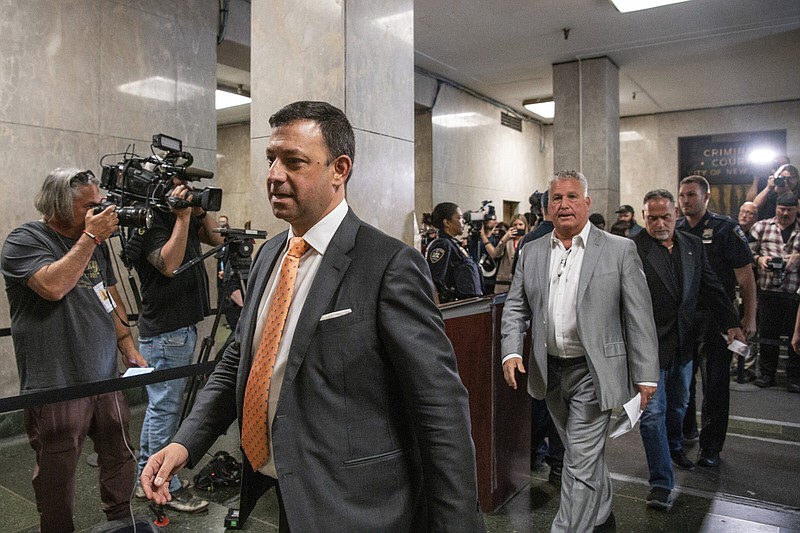NEW YORK -- A U.S. Marine veteran who placed an agitated, New York City subway passenger in a choke hold, killing him and sparking anger as bystander video went viral, surrendered Friday on a manslaughter charge filed nearly two weeks after the deadly encounter.
Daniel Penny, 24, was freed pending trial hours, after turning himself in at a police station and appearing in court to answer criminal charges in the May 1 death of Jordan Neely, a former subway performer with a history of mental illness and an extensive criminal record. Penny did not enter a plea.
Neely's death prompted protests, while others embraced Penny as a vigilante and a hero. His lawyers have said he was acting in self-defense. Lawyers for Neely's family said Neely was not harming anyone and did not deserve to die. An autopsy ruled Neely's death a homicide due to compression of the neck.
"Jordan Neely should still be alive today," Manhattan District Attorney Alvin Bragg said.
A judge authorized Penny's release on $100,000 bond and ordered him to surrender his passport and not to leave New York without approval. Prosecutors said they are seeking a grand jury indictment. Penny is due back in court on July 17.
Penny did not speak to reporters. At a brief arraignment, Penny faced straight ahead, his hands cuffed. He spoke softly, offering one-word answers to Judge Kevin McGrath, as his lawyer, Steve Raiser, placed an arm around his shoulder. If convicted, he could face up to 15 years in prison.
Assistant District Attorney Joshua Steinglass said Neely had been making threats and "scaring passengers" when Penny approached him from behind and placed him in a choke hold. Penny "continued to hold Mr. Neely in the choke hold for several minutes," even after he stopped moving, Steinglass said.
A freelance journalist who recorded Neely struggling to free himself, then lapsing into unconsciousness, said he had been shouting at passengers and begging for money aboard the train but had not gotten physical with anyone. Penny pinned Neely to the floor of the subway car with the help of two other passengers and held him in a choke hold.
Neely's death has raised an uproar over many issues, including how the city treats people with mental illness, as well as crime, race and vigilantism. Police questioned Penny in the aftermath but released him without charges.
Thomas Kenniff, a lawyer for Penny, said he did not mean to harm Neely and is dealing with the situation with the "integrity and honor that is characteristic of who he is and characteristic of his honorable service in the United States Marine Corps."
Donte Mills, a lawyer for Neely's family, disputed Penny's version of events, saying the veteran "acted with indifference. He didn't care about Jordan. He cared about himself. And we can't let that stand."
"Mr. Neely did not attack anyone." Mills said at a news conference Friday. "He did not touch anyone. He did not hit anyone. But he was choked to death."
Neely's father, Andre Zachery, wept as another family lawyer, Lennon Edwards, recounted the last moments before Penny tackled Neely to the ground and put him in a choke hold.
"What did he think would happen?" Mills asked.
Neely, remembered by some commuters for his Michael Jackson impersonations, had been dealing with homelessness and mental illness in recent years, friends said. Neely had been arrested multiple times and had recently pleaded guilty for assaulting a 67-year-old woman leaving a subway station in 2021.
Mills said Neely's outlook changed after his mother was killed by her boyfriend in 2007. Through his struggles, Mills said, Neely found joy in singing, dancing and bringing a smile to other people's faces.
"No one on that train asked Jordan: 'What's wrong? How can I help you?'" Mills said, urging New Yorkers in a similar situation: "Don't attack. Don't choke. Don't kill. Don't take someone's life. Don't take someone's loved one from them, because they're in a bad place."
Information for this article was contributed by Karen Matthews of The Associated Press.
